[ESP-ENG] Conéctate contigo, y tus apegos afectivos🩷🌸
Desde que comencé con esta columna sabía que sería inevitable escribir sobre algún tema relacionado con la Psicología, y esa ocasión llegó hoy. Para quien no sepa, soy estudiante del último año de Psicología, una carrera que me apasiona desde el primer momento (aunque ahora sea una estudiante con burnout😬). En clases recientes estábamos comentando sobre una temática que se ha hecho viral en las redes: los apegos. Es importante dar a conocer esa información, lo complicado es que muchas personas creen que por saber un poco ya son unos profesionales en el área, y no es tan fácil.
Por esa razón quise que esta semana habláramos un poco sobre el apego y sus tipos, me encanta traerles temas que les ayude a reflexionar sobre sí mismas, pero sobre todo compartirles información auténtica; no tanto desde el área teórica, porque está un poco de más en este contexto, sino más hacia el área personal, y mi opinión como futura psicóloga.
Since I started this column I knew it would be inevitable to write about something related to Psychology, and that occasion arrived today. For those who don't know, I am a student in my last year of Psychology, a career that I have been passionate about since the first moment (even though I am now a student with burnout😬). In recent classes we were commenting on a topic that has gone viral in the networks: attachments. It is important to make this information known, the complicated thing is that many people believe that by knowing a little they are already professionals in the area, and it is not so easy.
For that reason I wanted this week to talk a little about attachment and its types, I love to bring you topics that help you to reflect on yourselves, but above all to share authentic information; not so much from the theoretical area, because it is a little too much in this context, but more towards the personal area, and my opinion as a future psychologist.
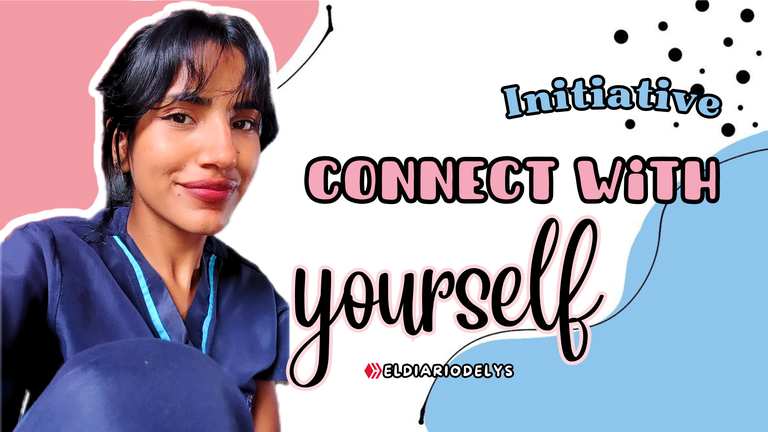
Los humanos somos seres sociales, desde que llegamos al mundo comenzamos a crear vínculos afectivos con las personas de valor que nos rodean. El apego comienza a evolucionar desde la infancia, en las interacciones del bebé y sus cuidadores, y a medida que crecemos lo vamos desarrollando como una parte de nuestra personalidad que interviene en la manera que nos relacionamos. El apego puede determinar cómo conectamos con otras personas, cómo son nuestras interacciones, e incluso parte de nuestro interés en otros. Esta teoría fue propuesta por el psicólogo John Bowlby, y sigue vigente en la actualidad, especialmente en la intervención con infantes. Sin embargo, para esta columna nos enfocaremos directamente en los vínculos que creamos con nuestras parejas y/o personas cercanas.
Humans are social beings, from the moment we enter the world we begin to create affective bonds with the people of value around us. Attachment begins to evolve in infancy, in the interactions of the baby and its caregivers, and as we grow up we develop it as a part of our personality that intervenes in the way we relate to each other. Attachment can determine how we connect with other people, how our interactions are, and even part of our interest in others. This theory was proposed by psychologist John Bowlby, and is still relevant today, especially in intervention with infants. However, for this column, we will focus directly on the bonds we create with our partners and/or close people.
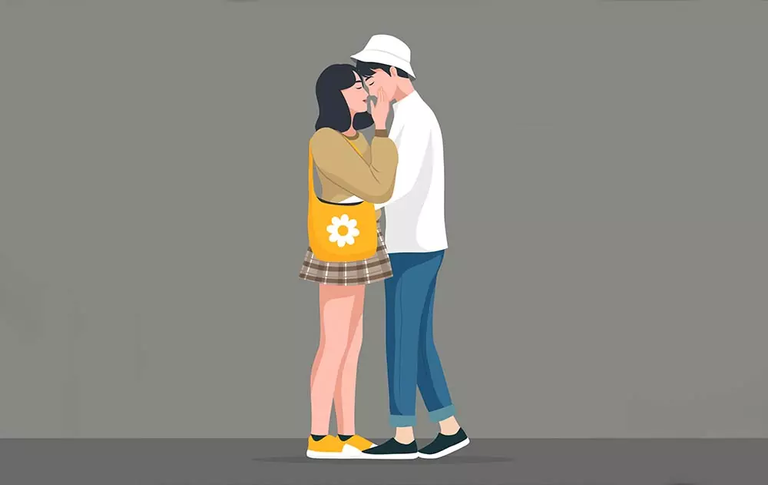
Están establecidos cuatro tipos de apegos, y la manera de identificar el nuestro va más allá de las características de cada uno de estos apegos, debemos realizar un trabajo introspectivo y reflexionar cómo han sido nuestras relaciones, tanto sociales, amistosas y románticas, y así lograr obtener una idea de cuál es nuestro tipo. E incluso te recomendaría buscar información del tema, en fuentes fidedignas, dado que no es complicado de comprender y puede ayudar a conocer más sobre nosotros mismos.
Apego Evitativo: son personas que se caracterizan por distantes y fríos, a quienes les cuesta expresar sus sentimientos, valoran su independencia y autonomía, pueden sobrellevar de "mejor manera" los rechazos, dado que para ellos una pareja no suele ser la prioridad. Me causó curiosidad una particularidad que menciona mi docente, y es que estas personas pueden prestarse a relaciones a distancia con más frecuencia.
Apego Ansioso/Ambivalente: personas que basan una gran parte de su felicidad en la pareja, y mantienen un miedo constante a ser abandonados; suelen sentirse inseguros si no tienen a su pareja cerca, e invierten sus pensamientos y energía en la relación. Son exigentes en la demostración de amor.
Apego Desorganizado: existe una dualidad de amor-odio hacia la pareja, generando confusión en la otra persona. Por lo general, mantienen relaciones conflictivas y/o dramáticas. Presentan temor a ser rechazados o abandonados, y es probable que desarrollen dependencia emocional.
Apego Seguro: Hay interés por el bienestar de la pareja, gusta pasar tiempo con la otra persona, pero también permite tener un espacio propio por separado. Hay seguridad tanto con los sentimientos propios, como confianza en lo que expresa sentimentalmente la pareja. No mantienen una preocupación constante por el abandono, y aceptan el final de la relación, cuando es necesario. Pero tal como mencionó una buena amiga: en ocasiones, esto solo existe teóricamente.
Four types of attachments are established, and the way to identify ours goes beyond the characteristics of each one of these attachments, we must make an introspective work and reflect on how our relationships have been, social, friendly and romantic, and thus get an idea of what our type is. And I would even recommend you to look for information on the subject, in reliable sources, since it is not complicated to understand and can help us to know more about ourselves.
Avoidant Attachment: these are people who are characterized by being distant and cold, who find it difficult to express their feelings, value their independence and autonomy, can cope “better” with rejections, since for them a partner is not usually the priority. I was curious about a particularity mentioned by my teacher, and that is that these people may lend themselves to long-distance relationships more often.
Anxious/Ambivalent Attachment: people who base a large part of their happiness on their partner, and maintain a constant fear of being abandoned; they tend to feel insecure if they do not have their partner close by, and invest their thoughts and energy in the relationship. They are demanding in the demonstration of love.
Disorganized Attachment: there is a duality of love-hate towards the partner, generating confusion in the other person. Generally, they maintain conflictive and/or dramatic relationships. They are afraid of being, rejected or abandoned, and are likely to develop emotional dependence.
Secure Attachment: There is interest in the well-being of the partner, likes to spend time with the other person, but also allows having a separate space of one's own. There is security both with one's own feelings, and confidence in what the partner expresses sentimentally. They do not maintain a constant worry about abandonment, and accept the end of the relationship, when it is necessary. But as a good friend mentioned: sometimes this only exists theoretically.
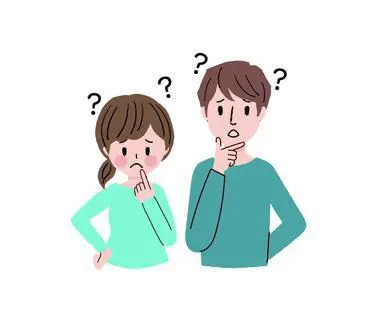
INICIATIVA || INITIATIVE
Por lo tanto, mi iniciativa de la semana es que puedan identificar y conversar un poco sobre su tipo de apego:
- ¿Cuál tipo de apegos consideras que posees?
- ¿Tu apego te ha generado malestar, u ocasionado conflictos en algún momento?
- En caso de tener una pareja actual, o anteriormente, ¿identificas cuál es su apego?¿Ha causado, o causó, roces en la relación?
Obviamente, estás en toda la libertad de agregar algo más si lo deseas.
Therefore, my initiative for the week is that you can identify and talk a little bit about your type of attachment:
- What type of attachments do you consider you possess?
- Has your attachment generated discomfort or caused conflict at any time?
- If you have a current or former partner, can you identify what their attachment is, and has it caused, or did it cause, friction in the relationship?
Obviously, you are free to add anything else if you wish.

De forma corta, les compartiré un poco de mi experiencia personal con respecto a este tema. Primero, considero que tengo un apego evitativo, me abruma cuando una persona está constantemente exigiendo atención, de manera exagerada (o al menos a mí me parece exagerado). Tiendo a alejarme de los conflictos, racionalizar los problemas, tratar de verlos desde el exterior, porque es difícil manejarlos rápido o estando muy involucrada. Normalmente, aprecio demasiado el tiempo conmigo misma, pero no es del todo bueno, dado que en ocasiones no logro balancear esa parte con mis relaciones sociales, a veces me encuentro tan centrada en mí misma, que comienzo a ignorar mi entorno, y en nuestras vidas debe haber un equilibrio. Lo más complicado para mí en tener de apego evitativo es que con frecuencia la ansiedad me golpea duro, tiendo a sobrepensar los hechos, comienzan los pensamientos intrusivos, junto a varios detalles más, y esta combinación hace que me vuelva más distante, evitando ese conflicto.
Sin embargo, soy consciente de mi tipo de apego, por lo tanto intento ser más cercana con las personas importantes a mi alrededor, demostrarles que sí les quiero, aunque a veces prefiera estar sola o aparte.
In a short way, I will share with you some of my personal experience regarding this issue. First, I consider that I have an avoidant attachment, I get overwhelmed when a person is constantly demanding attention, in an exaggerated way (or at least it seems exaggerated to me). I tend to withdraw from conflicts, rationalize problems, try to see them from the outside, because it is difficult to handle them quickly or by being too involved. Normally, I cherish time with myself too much, but it's not all good, since sometimes I fail to balance that part with my social relationships, sometimes I find myself so focused on myself, that I start to ignore my surroundings, and in our lives there must be a balance.The most complicated thing for me in having avoidant attachment is that often anxiety hits me hard, I tend to overthink the facts, intrusive thoughts start, along with several other details, and this combination makes me become more distant, avoiding that conflict.
However, I am aware of my attachment type, so I try to be closer to the important people around me, to show them that I do love them, even if sometimes I prefer to be alone or apart.
Segundo, por supuesto que mi tipo de apego me ha ocasionado distintos conflictos, específicamente cuando hago las cosas por mi cuenta, o por mi molestia de tener a las personas tan cerca, queriendo vincularse profundamente. Mi mayor malestar es que se me dificulta relacionarme, no porque no tenga habilidades sociales, sino que la mayor parte del tiempo no siento interés en socializar, y sinceramente, hace falta esa interacción con otros, siempre vamos a necesitar ayuda de alguien para continuar. Podemos ser autónomos e independientes, pero eso no significa que no vamos a necesitar compañía.
Y por último, actualmente no tengo pareja, se me ha hecho difícil porque pierdo el interés rápidamente en los chicos con quienes interactúo. Y claro, los evito. O, si alguno hace algo que no me gusta, suelo alejarme y no regreso. Al mismo tiempo, sí logro identificar el tipo de apego de mis parejas anteriores, y sé que los roces en esas relaciones fue una combinación explosiva de nuestros apegos, al hecho de llegar a la ruptura por el comportamiento de esos apegos. No me gusta que me limiten, ni dejar de desarrollar mis intereses por otros. Aprecio el tiempo para mí, suelo ser autoritaria con las decisiones que tomo, y no me gustan los cambios, y causa un choque cuando alguien intentar entrar y desorganizar mi rutina. Como mencioné, debe haber un equilibrio, tener límites pero también soltar, y ninguno de los dos supo cómo hacerlo. Pero don't worry, ya lo estoy trabajando en terapia para futuras relaciones.
Second, of course my type of attachment has caused me different conflicts, specifically when I do things on my own, or because of my discomfort of having people so close, wanting to bond deeply. My biggest discomfort is that it is difficult for me to relate, not because I don't have social skills, but because most of the time I don't feel interested in socializing, and honestly, we need that interaction with others, we will always need help from someone to continue. We can be autonomous and independent, but that doesn't mean we won't need company.
And lastly, I currently don't have a partner, it has become difficult for me because I quickly lose interest in the guys I interact with. And of course, I avoid them. Or, if one does something I don't like, I tend to walk away and not come back. At the same time, I do manage to identify the type of attachment of my previous partners, and I know that the friction in those relationships was an explosive combination of our attachments, to the fact that we broke up because of the behavior of those attachments. I don't like to be limited, nor do I like to stop developing my interests for others. I cherish time to myself, I tend to be authoritarian with the decisions I make, and I don't like change, and it causes a shock when someone tries to come in and disrupt my routine. As I mentioned, there has to be a balance, having boundaries but also letting go, and neither of us knew how to do that. But don't worry, I am already working on it in therapy for future relationships.
Espero que te interese la columna e iniciativa de esta semana; me hacía mucha ilusión compartirles un poco de mi carrera profesional. Y ya quiero leer sobre sus experiencias.
I hope you are interested in this week's column and initiative; I was very excited to share with you a little bit of my professional career. And I already want to read about your experiences.

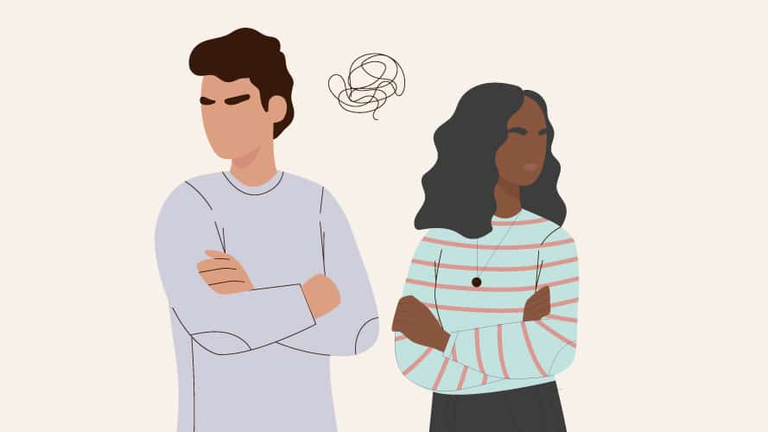
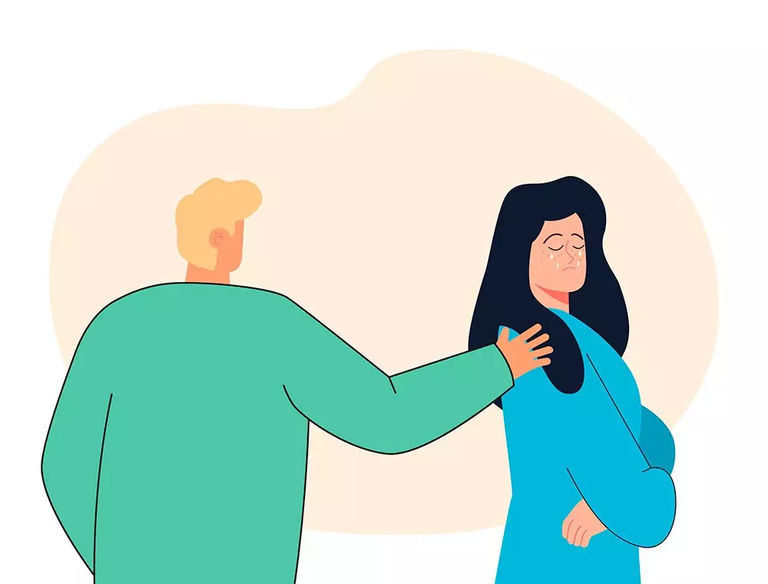
La prof. Carbelis estaría orgullosa 🤭💞. Pronto participaré en la iniciativa
https://x.com/KerlysVielma/status/1800748241421836675
me gusta tu post realmente este tema es muy interesante algunas veces no sabemos definir que tipo de apegos tenemos ,pero en tu caso que lo tienes definido y consciente te permitirá ir avanzando en las relaciones porque partiendo de mi edad y experiencia esos apegos cambian con los años desde mi punto de vista
Sí, también considero que dependiendo de las experiencias de vida que vamos acumulando, e incluso en la interacción con distintas personas, este apego puede modificarse. Y además, cada persona es distinta, así que todos manifestaremos nuestro apego a nuestra manera, por lo tanto, sí es un tema bastante interesante y sumamente importante para nuestras relaciones🩵
No tenía idea de está clasificación de tipos de apegos. Leyendote y leyendo las definiciones, me di cuenta que también encajo en el apego evitativo en general. Pero tengo un apego seguro con personas en particular. Así que está bueno ver que quizás depende de cómo nos relacionamos con personas cercanas.
Como siempre, un post muy bueno, instructivo y educativo emocionalmente amiga. Saludos ✨
Me siento de la misma manera, aunque el apego evitativo abunda en mis interacciones, especialmente al principio, creo que con el paso del tiempo puede modificarse dependiendo de la persona, por ejemplo, con mi familia principal y mis amigos más cercanos también presento un apego seguro (aunque a veces tiendo a evitarlos, pero ssshhh🤫), es cuestión de los aprendizajes que vamos obteniendo en el camino y de las personas con las que estamos relacionándonos. Lo importante es saber identificar cuál es nuestro apego, para saber llevar mejor nuestras relaciones.
Gracias por siempre leer, amiga✨
Creo que es así, todo depende del tipo de conexión o no que haga con las personas de nuestro círculo. Same con mi familia, los quiero, pero a veces lejos jajaja. Un tema muy interesante amiga, me alegra haberlo leído y poder participar con mi experiencia. Saluditos ⭐
@tipu curate 6
Sorry, please curate posts not older than 1 day.
Es un tema muy interesante el que traes para ésta semana, había escuchado algo sobre los apegos, pero con tu contenido reflejas con claridad cada uno de ellos, gracias por compartir tus iniciativas @eldiariodelys, saludos.
Son un tema realmente importante, especialmente para mejorar nuestras relaciones con otros, e incluso con una misma. Y con tanta información que se puede encontrar por allí, algunas no tan certeras, es bueno traerlo a la comunidad🥹✨